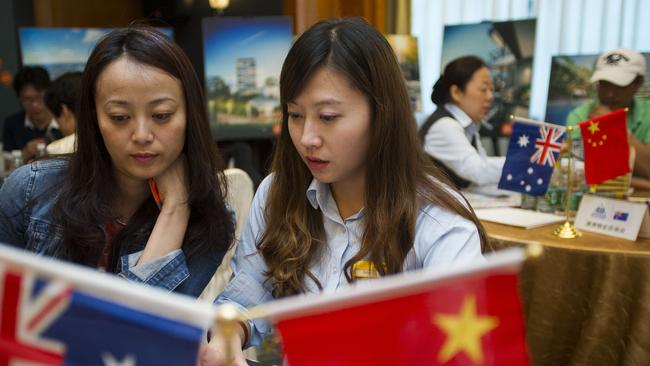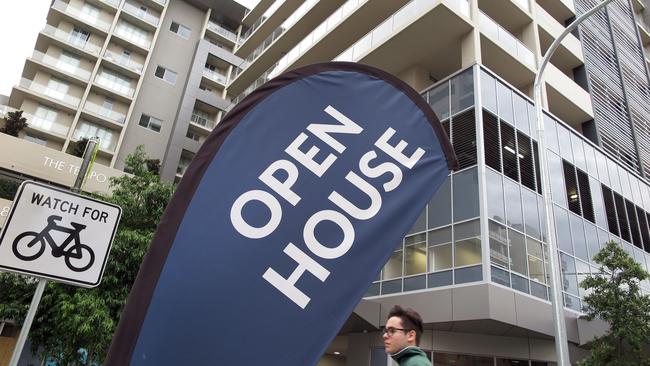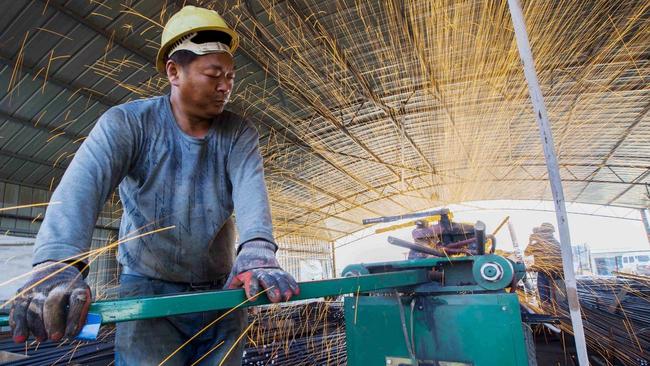
If they did know then many would be delighted because there is an underlying affection between many ordinary Chinese people and Australia. We are seeing that affection being expressed via the determination of ordinary Chinese to hang on to the vast number of apartments they own in Australia.
Over the last decade Chinese have been by far the largest buyer of apartments in Melbourne and Sydney. Indeed in some years they were the only buyers. They are no longer in the market because they can’t extract the money from China and there is deep fear in Hong Kong. But the vast majority have not sold their apartments. Similarly, Chinese who bought apartments for later settlement continue to honour their obligations. Somehow they find the money. Given the absence of the main buyers, not surprisingly, the value of apartments has fallen and the fall would have been greater but for an influx of Australian buyers, particularly first-time buyers.
The price fall means that many Chinese are honouring obligations to buy at prices above the market.
The attitude of ordinary Chinese is in stark contrast to the big Chinese developers who came to Australia seeking a fortune and have, for the most part, exited nursing large losses.
Indeed the tactics of the Chinese developers are reminiscent of the Japanese. In the 1980s and early 1990s, Japanese investment dollars flowed into Australia at a furious pace, concentrating on tourist properties. Then came the collapse of the Japanese economy, and they sold quickly at huge losses.
It is tempting to regard the Chinese developer exodus as part of Australia’s “punishment” but my information is they simply made bad management decisions. They tried to establish on a large scale rather than starting small and learning the market.

It is true that Australia is suffering from the absence of Chinese students and tourists but that market is not tested because it is the COVID-19 travel restrictions that are the major force in the vaporisation.
A clear danger for Chinese tourism and students is that the actions of Xi Jinping and the outbursts of a number of Chinese officials are creating an anti-Chinese feeling in the community.
Obviously part of the Chinese buying came from Hong Kong and those buyers must be seriously looking at whether, post-COVID, it will be time to shift abodes. It’s possible that after COVID-19 we will get an avalanche of people from Hong Kong.
Many of the Chinese buyers purchased apartments for their student children but retained them.
China under Xi Jinping is a very different and more frightening place so the apartments theoretically provide a place to go and asset diversification.
Like those in China, few Australians understand just how badly Xi Jinping’s actions have backfired. The bans on Australian wine, lobsters, timber and some crops have hit us but coal exports are on the rise again and have achieved a four-month high. Australian quality coal is in demand around the world and we have been able to transfer coal bound for China to other countries, which have gleefully allowed the poor quality coal they had planned to buy to be shipped off to China.
The Chinese are suffering a severe winter which has seen power prices skyrocket. Steel mills have not only been hit by the Australian coal bans but the price of iron ore has skyrocketed.
And for Australia that extra revenue has offset most of the impact Xi Jinping’s actions.
I am not sure whether Xi Jinping’s advisers are courageous enough to tell the emperor the truth. But The Australian reports that the coal ships marooned off the coast of China may be allowed to unload their cargoes ----the first sign of a thaw in the punishment saga.

You may remember that on January 18 I explained how Xi Jinping, in his “war” on Australia, applied many of the strategies set out by the master Chinese General and philosopher Sun Tzu some 2000 years ago.
But in applying the principles of Sun Tzu to the Australian campaign, President Xi and his advisers made mistakes. Most surprising was Xi’s failure grasp the implications to the Australian campaign of his plan to reinvigorate China post COVID.
It would involve substantial infrastructure and capital spending which would boost the demand for steel and therefore Australia’s iron ore and coal.
Sun Tzu declared: “If you know yourself but not the enemy, for every victory gained you will also suffer a defeat. If you know neither the enemy nor yourself, you will succumb in every battle.”
Sadly for Xi and his advisers they did not know what was likely to happen in either the “enemy” (Australia ) or even “yourself” (China).





There are now more than one billion Chinese citizens on the internet. But very few of them know that Chinese President Xi Jinping’s plan to punish Australia is going badly.